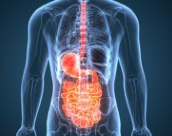Author: DynamicBrain Inc.
Publication: Monthly Newsletter
Published Date: July 20, 2021
Many people think vision depends on the eyes, and hearing on the ears. But that is only partly true. Sensory organs (like eyes and ears) collect information from the environment and deliver it to the brain where it’s processed. We make sense of that information only after our brain has processed it.
When we’re young, this process is quick and accurate: we see and hear well, we think and react quickly, and we enjoy remembering information clearly at a later time. Unfortunately, starting in our 20s, these functions begin to decline. Several strong published studies have shown that BrainHQ can significantly improve this process and allow us to continue staying connected—hearing better, seeing more, driving longer and living independently as we age. (See Vision and Hearing and Driving.)
Please don’t forget your BrainHQ training today and if you still don’t have full access, you may subscribe here.

Kind regards, Frieda Fanni
President
DynamicBrain Inc.
DynamicBrain Inc. is the Canadian partner of Posit Science Corporation providing brain fitness program BrainHQ in English and French.
|
 |
 Finding the right signal
Finding the right signal
Inflammation is an important evolutionary response for keeping an infection from spreading. But too much inflammation can cause more damage than good. In the brain, excessive inflammation can cause neurons to die. That, in turn, can lead to cognitive decline associated with Alzheimer’s disease. Investigators at Massachusetts General Hospital led a study to identify a specific signaling molecule that can help modify inflammation and the immune system to protect against Alzheimer’s.
Learn what they discovered
here.
 Trusting your gut
Trusting your gut
English is full of expressions where the gut is the seat of emotions. “A gut feeling,” “going with your gut,” and “a gut response” are some. When it comes to making friends, trusting your gut (trusting your feelings of intuition) is a common way of going about navigating a new social interaction. It turns out that germs inside our gut may actually affect our ability to socialize, and research has shown that this is the case for mice.
Check out how this gut-brain communication works and what it might mean for human socialization
here.
 In your dreams
In your dreams
What if you could gaze into someone’s mind as they sleep and see what they were thinking? Would you witness what’s commonly believed to happen during sleep—the brain sorting out the many pieces of information processed during the day? In what seems like something straight out of science fiction, researchers from Switzerland have been able to do just that, and glimpse what people think while they sleep.
Find out just how they did this and what they observed
here.